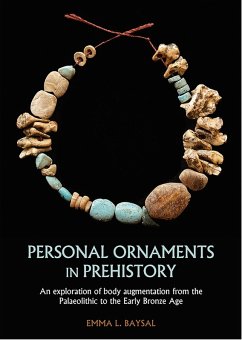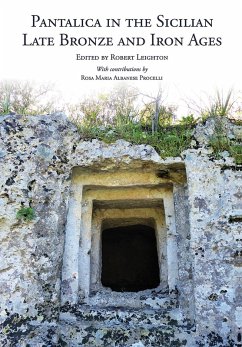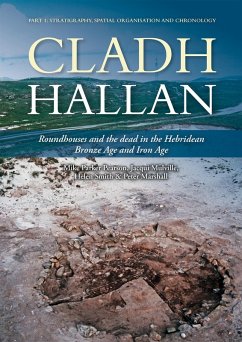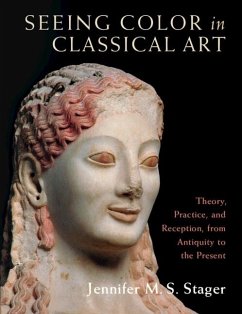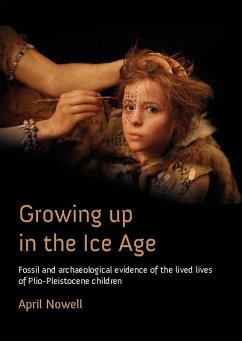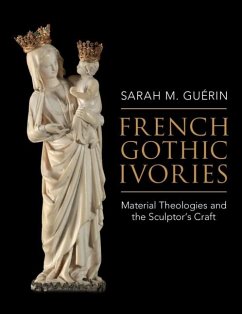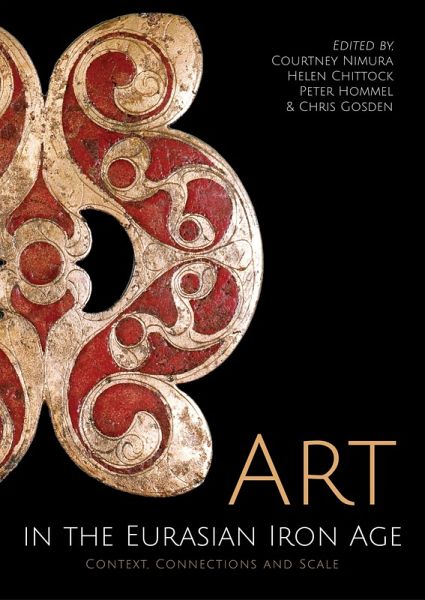
Art in the Eurasian Iron Age (eBook, PDF)
Context, Connections and Scale
Redaktion: Courtney Nimura, Nimura; Chris Gosden, Gosden; Peter Hommel, Hommel; Helen Chittock, Chittock
Versandkostenfrei!
Sofort per Download lieferbar
24,95 €
inkl. MwSt.
Weitere Ausgaben:

PAYBACK Punkte
12 °P sammeln!
Since early discoveries of so-called Celtic Art during the 19th century, archaeologists have mused on the origins of this major art tradition, which emerged in Europe around 500 BC. Classical influence has often been cited as the main impetus for this new and distinctive way of decorating, but although Classical and Celtic Art share certain motifs, many of the design principles behind the two styles differ fundamentally. Instead, the idea that Celtic Art shares its essential forms and themes of transformation and animism with Iron Age art from across northern Eurasia has recently gained curren...
Since early discoveries of so-called Celtic Art during the 19th century, archaeologists have mused on the origins of this major art tradition, which emerged in Europe around 500 BC. Classical influence has often been cited as the main impetus for this new and distinctive way of decorating, but although Classical and Celtic Art share certain motifs, many of the design principles behind the two styles differ fundamentally. Instead, the idea that Celtic Art shares its essential forms and themes of transformation and animism with Iron Age art from across northern Eurasia has recently gained currency, partly thanks to a move away from the study of motifs in prehistoric art and towards considerations of the contexts in which they appear. This volume explores Iron Age art at different scales and specifically considers the long-distance connections, mutual influences and shared 'ways of seeing' that link Celtic Art to other art traditions across northern Eurasia. It brings together 13 papers on varied subjects such as animal and human imagery, technologies of production and the design theory behind Iron Age art, balancing pan-Eurasian scale commentary with regional and site scale studies and detailed analyses of individual objects, as well as introductory and summary papers. This multi-scalar approach allows connections to be made across wide geographical areas, whilst maintaining the detail required to carry out sensitive studies of objects.
Dieser Download kann aus rechtlichen Gründen nur mit Rechnungsadresse in A, B, BG, CY, CZ, D, DK, EW, E, FIN, F, GR, HR, H, IRL, I, LT, L, LR, M, NL, PL, P, R, S, SLO, SK ausgeliefert werden.




